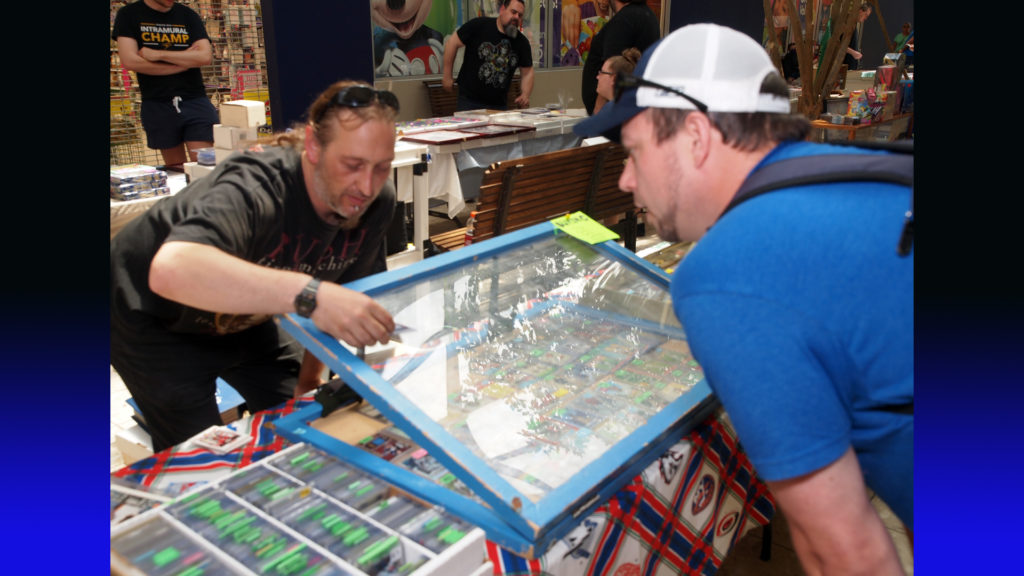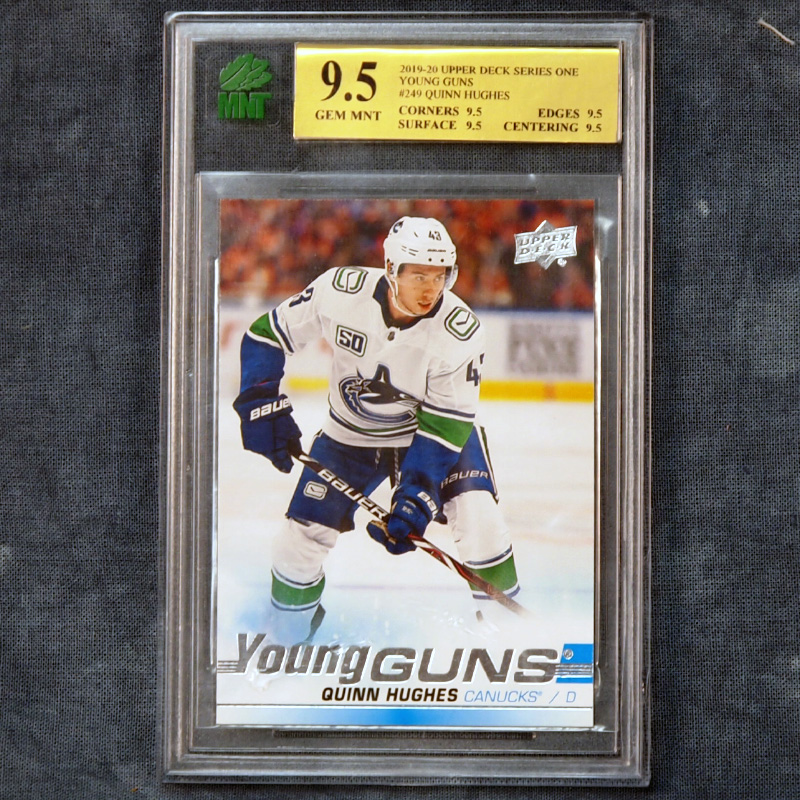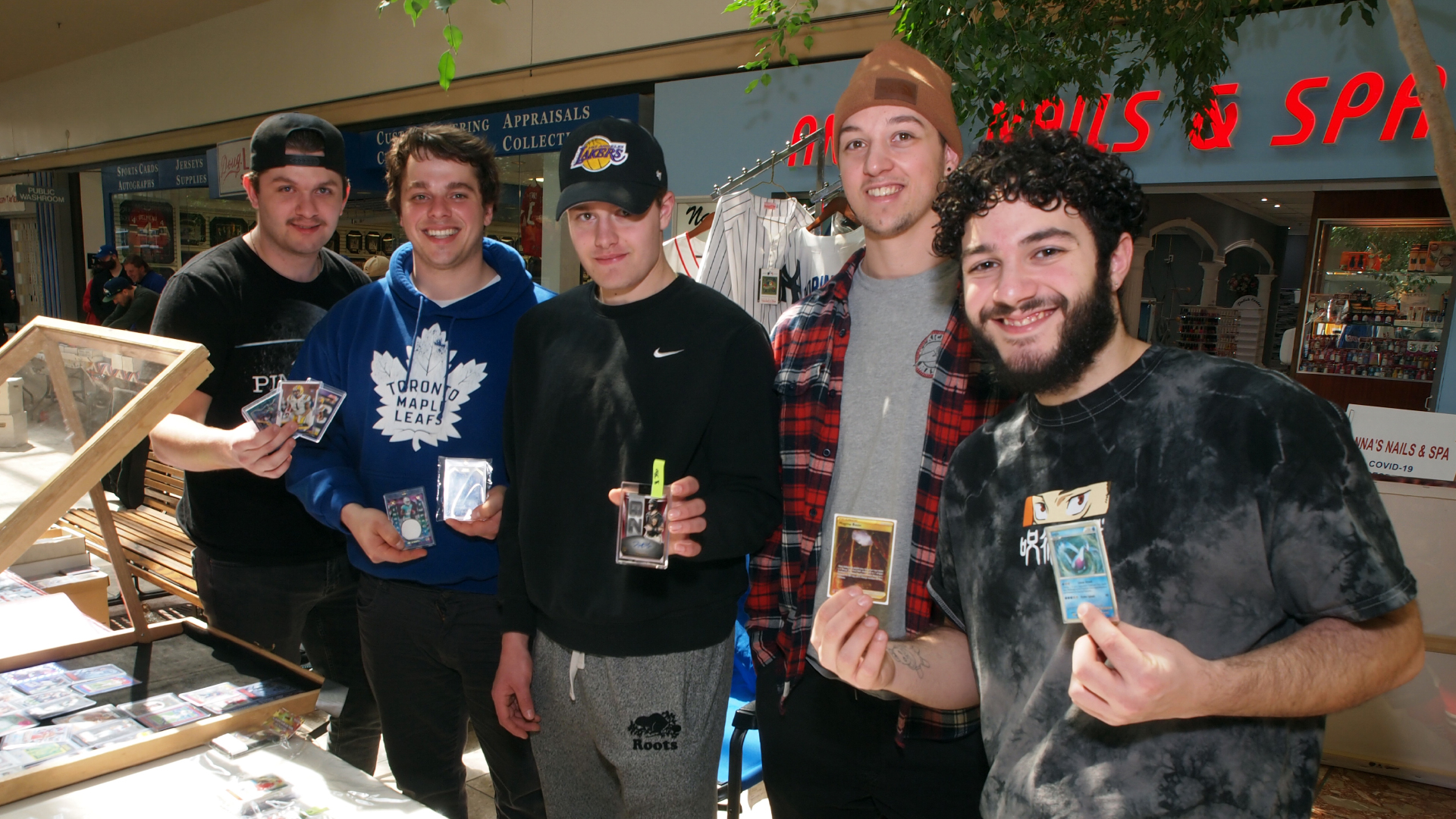Dealing With Dealers
With the proliferation of local shows and the Toronto Expo less than two months away, it’s time to ask the question – how do you deal with dealers?
Everyone has their own ways of trying to get the best deal on a card or an autograph from a dealer at a show. Some people start with their final offer, while others will haggle for the bottom dollar. But not many people think about how their attitude affects the transaction.
Here are a few tips straight from dealers on how you can improve your chances at walking away not only with what you want, but also with a little more money in your pocket.

Be polite – A little courtesy goes a long way. Saying “please” and “thank you” shows your respect for the person across the table, and also puts the dealer at ease.
That could translate into a better deal for you.
Be patient – At any given time during the show, there are thousands of people browsing around. Even if a booth doesn’t have any customers or you’re at a smaller show, the dealer still has to keep his or her inventory in order and keep an eye on the tables.
Take your time, and when the coast is clear, ask your question.
Make a reasonable offer – At a recent show, a teenager approached my table and picked up a Jarome Iginla card worth about $15. Before I could say anything, he flipped it back down (nowhere near where it had been) and said, “I’ll give you $2 for it.”
There are tons of things wrong with this guy’s approach, but first and foremost is wasting my time. There’s no chance I’m going to sell the card for $2, so why even ask?
Ask a reasonable price – Conversely, if you are looking to sell or trade, know what you want for your cards. Time is money (especially at big events), so if you expect the dealer to price your cards for you, they likely won’t unless it’s something they really want. In addition, how do you know you’re getting a fair price if you don’t do your homework?
Handing a dealer a single card or a box of cards and saying “Here’s what I am looking for on this (these)” lets the dealer know immediately whether it’s even possible a deal can be struck, and if it can’t, saves both of you the time and aggravation.
And be realistic. If you have a 1951-1952 Parkhurst set, you’ll probably get a good offer and the dealer’s attention right away. But you have current and relatively common stuff, don’t expect a high percentage of book value for it – if you receive an offer at all.
Dealers have to factor in the cost of transportation, paying for space and how cheaply other vendors are selling the same product.
Watch your kids – Dealers love to see children at shows. It means the younger crowd is still interested in collecting, and it’s the reason many dealers take the trouble to lug low-dollar cards around with them.
However, children don’t understand the difference between a 10-cent common and a dealer’s $300 Wayne Gretzky patch card. Make sure your kids aren’t grabbing things off tables, and please – don’t ever let them wander around unsupervised. That’s for their safety as much as everyone else’s.
Watch your language – Nothing makes a dealer cringe faster than someone dropping the “f” bomb around his or her table. It drives off other customers and makes everyone uncomfortable. Save the potty mouth for the ride home.
Walk away – If you can’t come to an agreement with a dealer about something, don’t start an argument. Other dealers are watching what happens at the tables around them, and word spreads quickly if you’re argumentative and unreasonable. I can think of at least three instances at recent shows where a rude customer got the cold shoulder from dealers after raising his voice or making ridiculous requests.

Finally, the whole point of any show is to have a good time, get a few cards and meet other collectors. Even if you’re not going to spend a bundle, you can always get the price of admission just out of new knowledge and making new connections.
Happy hunting!

